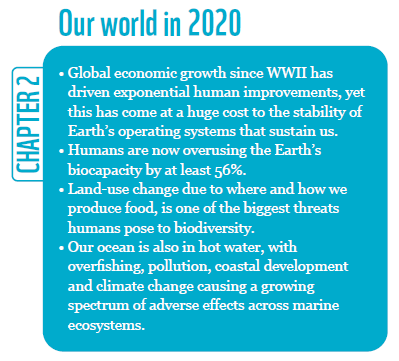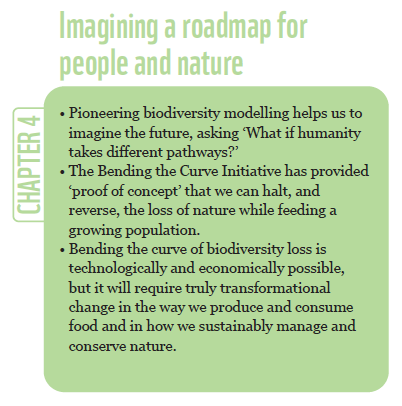
Today I want to do a thread about a hugely important report: the @WWF's
LIVING PLANET REPORT 2020
I'll also explain why this report makes me want to redouble my efforts to accelerate the switch to electric vehicles and renewable energy.
f.hubspotusercontent20.net/hubfs/4783129/…
LIVING PLANET REPORT 2020
I'll also explain why this report makes me want to redouble my efforts to accelerate the switch to electric vehicles and renewable energy.
f.hubspotusercontent20.net/hubfs/4783129/…
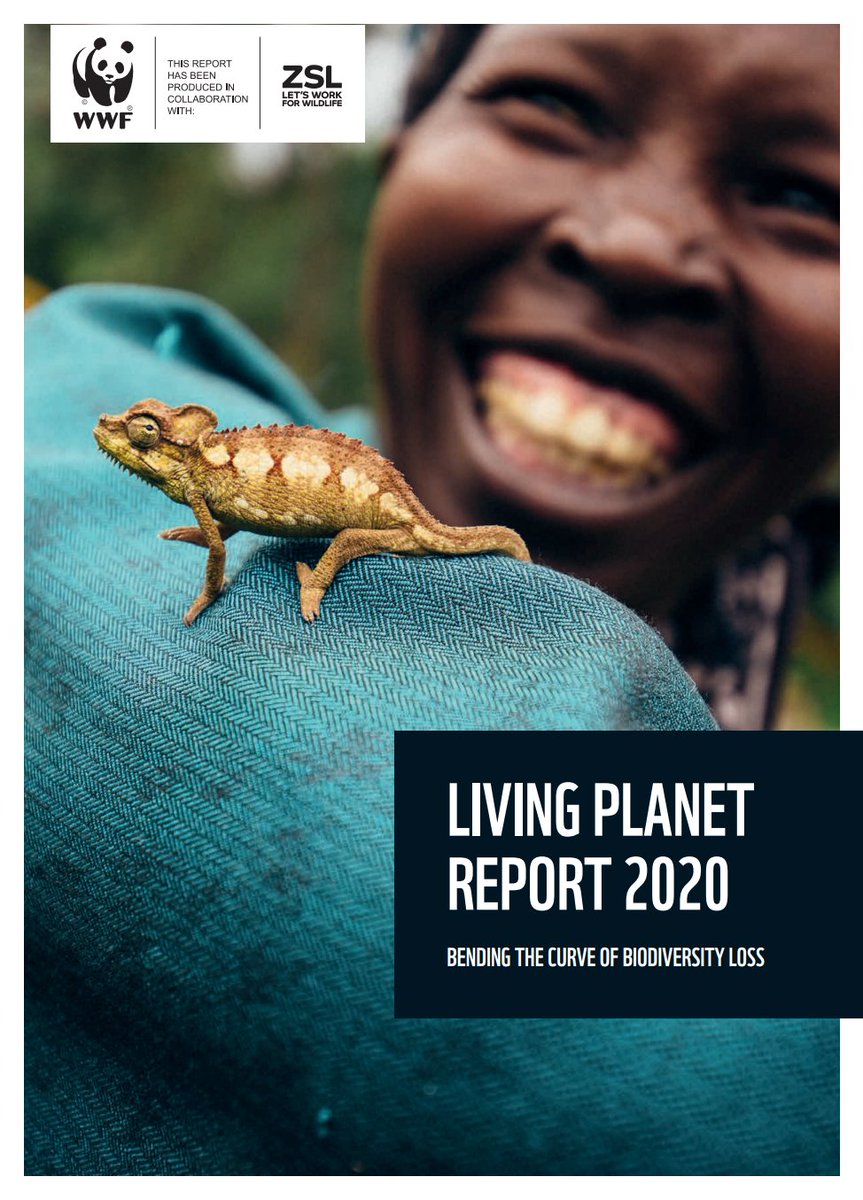
Many followers know I devote my life to accelerating the adoption of renewable energy and electric vehicles.
But I actually don't do that because I like electric cars, wind turbines or solar cells.
So why?
But I actually don't do that because I like electric cars, wind turbines or solar cells.
So why?
Simple:
I want everybody to thrive and be happy and to avoid suffering.
That means that ALL humans have access to food, shelter, healthcare and safety which they can enjoy in relative freedom.
EVERYbody also means: animals can thrive, without being tortured to become our food.
I want everybody to thrive and be happy and to avoid suffering.
That means that ALL humans have access to food, shelter, healthcare and safety which they can enjoy in relative freedom.
EVERYbody also means: animals can thrive, without being tortured to become our food.
In order to achieve that we must combat global warming (GW). GW means large swaths of our planet become less inhabitable, enormous flows of GW refugees, and nature cannot adapt fast enough, so it's a major driver in biodiversity loss (the 6th mass extinction).
Solar, wind and electric vehicles (with storage using batteries and efuels: e.g. by producing hydrogen) are simply the fastest and most cost effective tools to achieve these goals.
That's also why I initiated NEONresearch.nl at @TUeindhoven
That's also why I initiated NEONresearch.nl at @TUeindhoven
But there is an EVEN DEEPER REASON for solar, wind and electric vehicles than combatting GW:
SAVING NATURE.
That's not just the treehugger in me talking. Without a well functioning natural system we can say human civilization goodbye. And we can't ignore the damage any longer.

SAVING NATURE.
That's not just the treehugger in me talking. Without a well functioning natural system we can say human civilization goodbye. And we can't ignore the damage any longer.
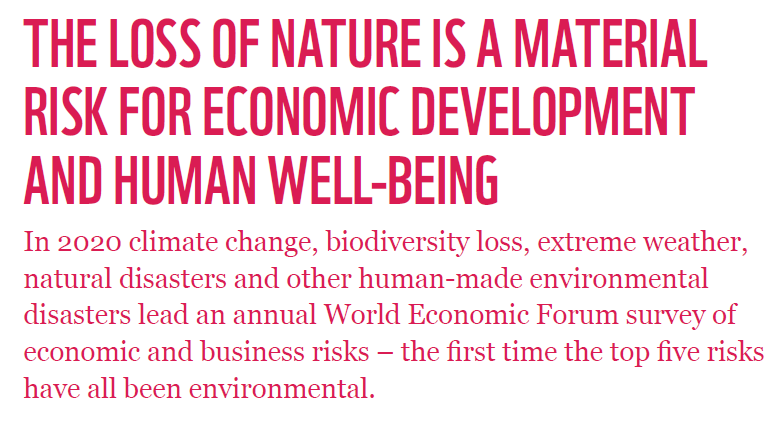
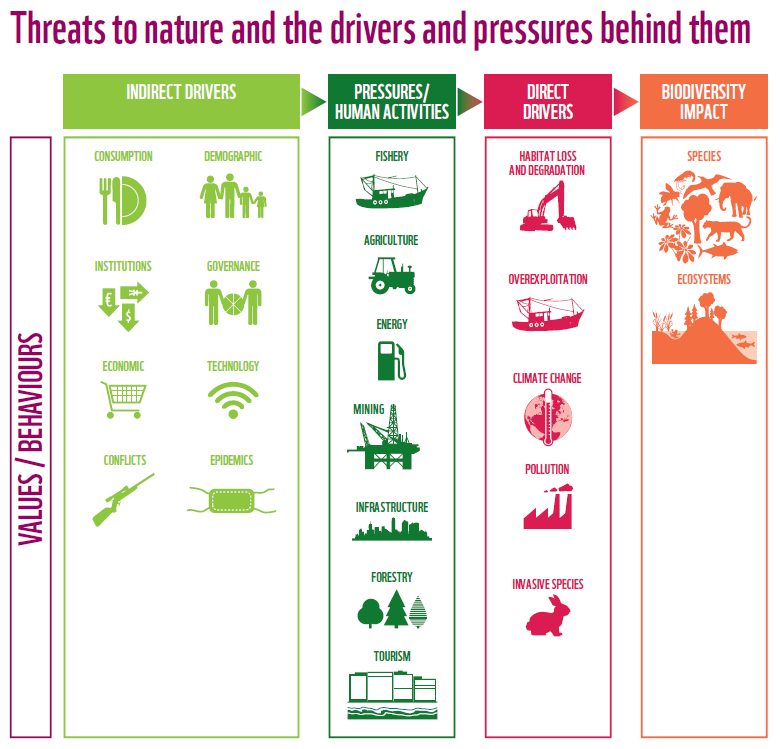
So how are we doing with regard to preserving nature?
NOT GOOD!
That's what becomes very clear from this report.
But also:
THERE IS ENOUGH FOR EVERYBODY,
if we approach it in a less wasteful and (dare I say) stupid way than we are currently doing.
NOT GOOD!
That's what becomes very clear from this report.
But also:
THERE IS ENOUGH FOR EVERYBODY,
if we approach it in a less wasteful and (dare I say) stupid way than we are currently doing.
I think the report is not gloomy or dull.
It's gorgeously designed with beautiful photos, infographics and graphs supporting the text.
And it doesn't just lament. It shows WHY things happen and HOW we can change.
We can have our cake and eat it too, if we get smart.
It's gorgeously designed with beautiful photos, infographics and graphs supporting the text.
And it doesn't just lament. It shows WHY things happen and HOW we can change.
We can have our cake and eat it too, if we get smart.
Chapter 1 shows we are losing biodiversity at an alarming rate. It really helped me to wrap my head around what is happening.
Of course it has an activist streak, but I would not hesitate to recommend it as a high school or university textbook. It's that good imho.
Of course it has an activist streak, but I would not hesitate to recommend it as a high school or university textbook. It's that good imho.
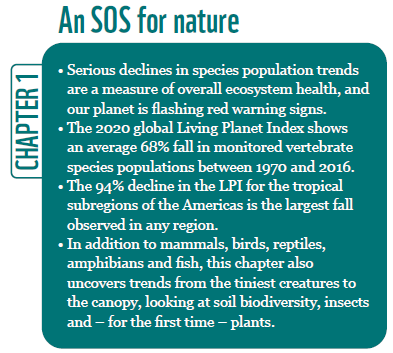
If we look at the causes, 'land use change' is by far the most important driver. Simply put: demolishing natural habitats in order to grow food (mostly for animals we then eat) or biofuel.
That's also why I am weary of biofuels: they combat GW but can kill nature in the process.

That's also why I am weary of biofuels: they combat GW but can kill nature in the process.

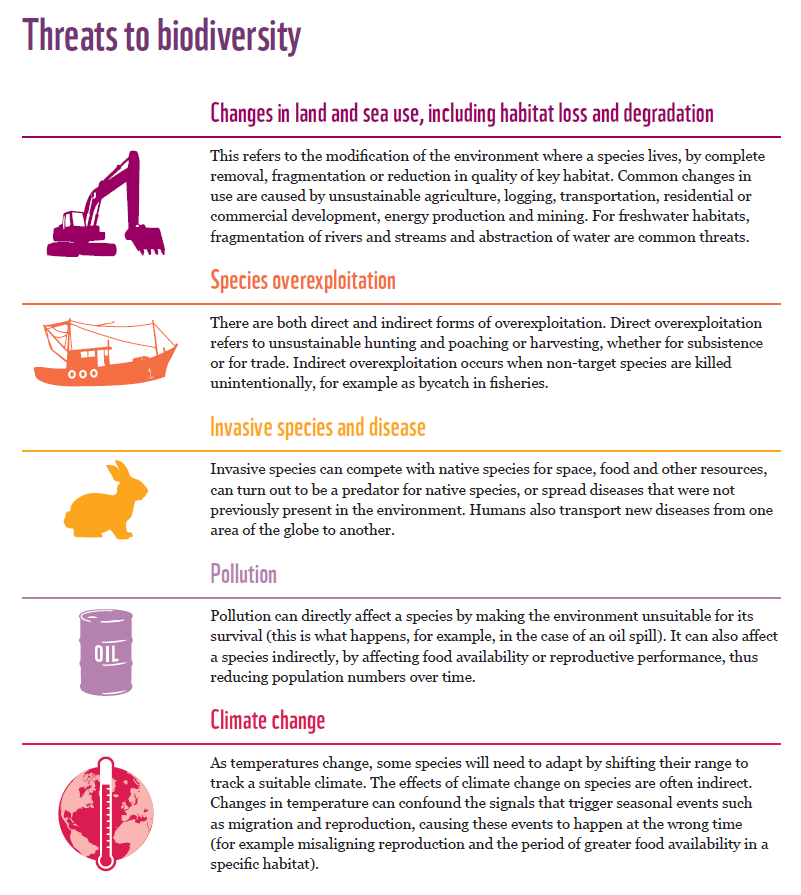
Wind and solar on the other hand use relatively little land and that land doesn't need to be fertile soil. So solar and wind 'leave nature alone' while agro-based biofuels do not.
Caveat: not ALL biofuel is bad! So let's have a nuanced discussion about it. But be careful!
Caveat: not ALL biofuel is bad! So let's have a nuanced discussion about it. But be careful!
Back to the previous graph: that biodiversity loss is less in the developed nations is true. But it's because WE rich countries already wrecked the place in the past.
So it's time WE start using more of our wealth to save biodiversity where people have not wrecked the place yet.
So it's time WE start using more of our wealth to save biodiversity where people have not wrecked the place yet.
One of the new things in the report is that it describes how plants and insects are under threat. They may not be as cuddly as panda's but they are the bedrock for larger species (such as us). And did I already say the report is gorgeous to look at? 

And it also shows why I bother my followers with food so often.
I know you are mostly interested in electric vehicles, solar and wind. And less so, in my promotion of eating more vegan. But even apart from animal suffering, the impact of our food on nature is enormous!


I know you are mostly interested in electric vehicles, solar and wind. And less so, in my promotion of eating more vegan. But even apart from animal suffering, the impact of our food on nature is enormous!
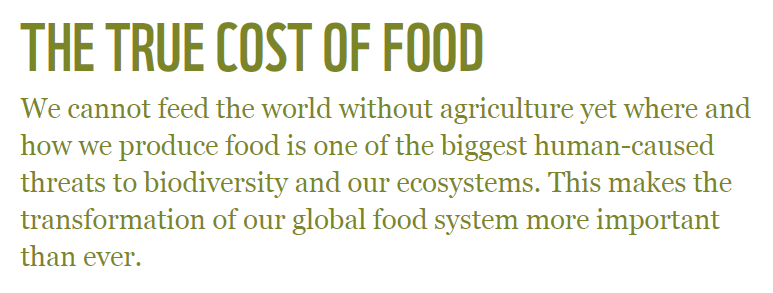
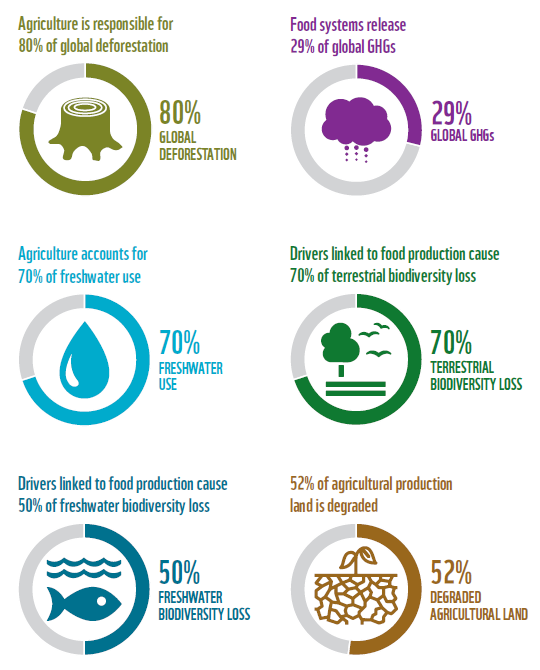

Oceans are in hot water also as the report states.
Overfishing and destructive fishing practices are number one on the list.
Global warming is number two.
Plastic pollution is number three. (Including tires of electric vehicles!)
Oil pollution is number four.
Overfishing and destructive fishing practices are number one on the list.
Global warming is number two.
Plastic pollution is number three. (Including tires of electric vehicles!)
Oil pollution is number four.

Chapter 3 looks at how WE need nature. It shows economics currently misses the picture and leads us astray.
(I've ranted about the irrelevance of GDP and economic equilibrium models with 'rational actors' before. See also my open access publication: hindawi.com/journals/compl….)
(I've ranted about the irrelevance of GDP and economic equilibrium models with 'rational actors' before. See also my open access publication: hindawi.com/journals/compl….)

It shows we are finally using our computing power to get to grips with how we impact the world in a realistic ways. What we try to do with NEON for national and local energy systems, the 'Bending the Curve Initiative' is doing for global biodiversity. 

It shows there is no need to be adrift in a world heading for an increasingly severe extinction event. We can use our wits to avoid the worst of it. 
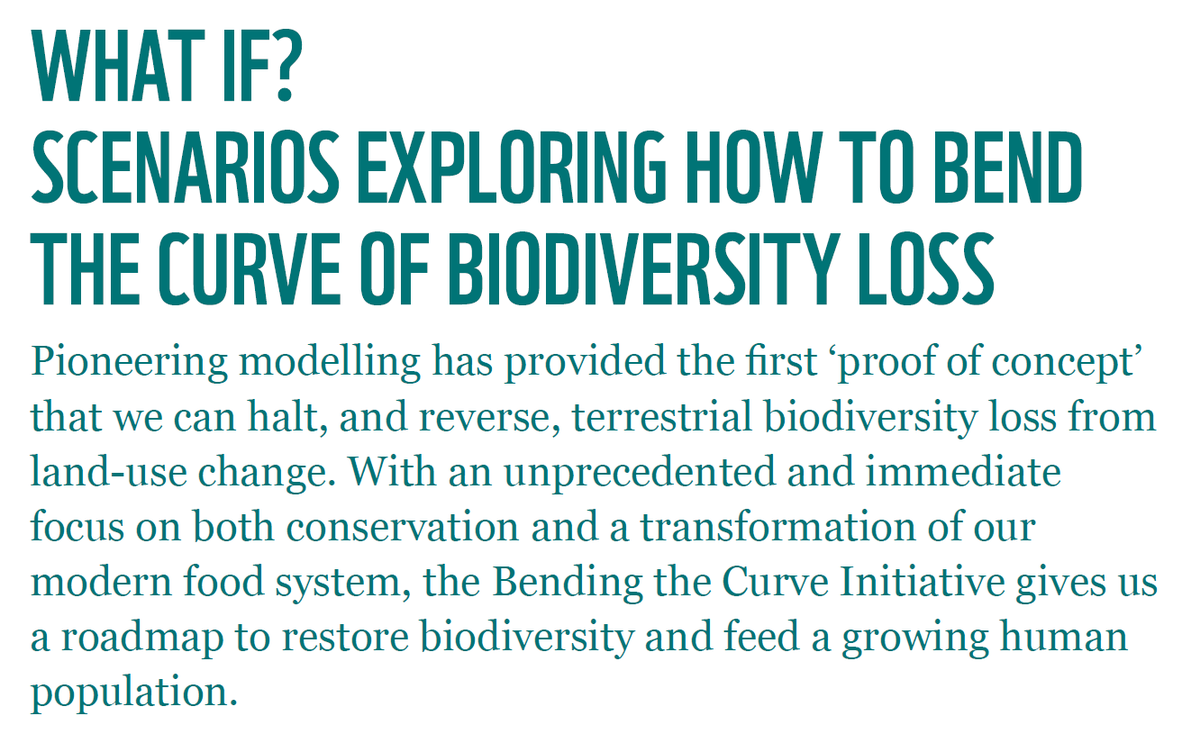
I've simplified their graph (page 120) to show you the 1st result.
Simply put:
conservation helps most
50% less meat is next best
sustainable agriculture has a big impact too
Do all three and we start regenerating nature almost as fast as we are currently degrading it.
Simply put:
conservation helps most
50% less meat is next best
sustainable agriculture has a big impact too
Do all three and we start regenerating nature almost as fast as we are currently degrading it.

And I think we can do even better than this. I think plant-based meat alternatives and 'cultured meat' will become tastier, healthier and cheaper than animal slaughter.
Just like solar, wind and electric vehicles are becoming cheaper than burning fossil fuel.
Just like solar, wind and electric vehicles are becoming cheaper than burning fossil fuel.
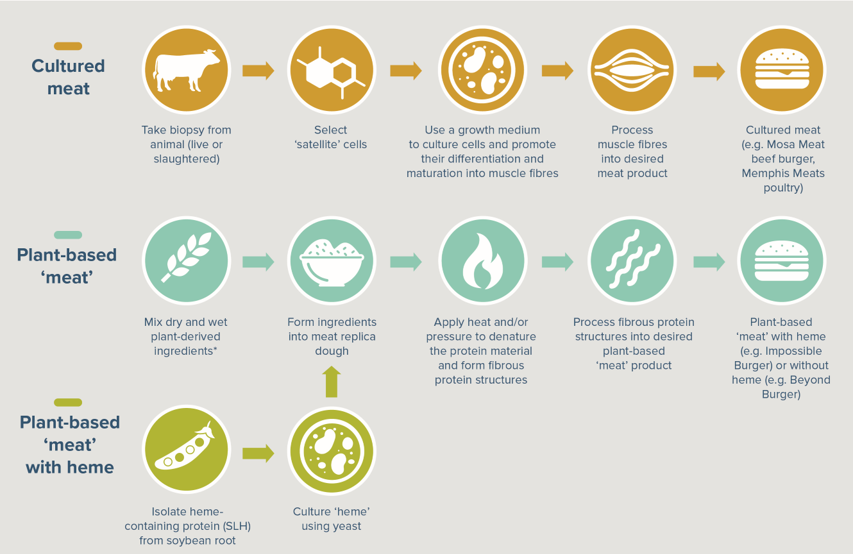
So the good news is: we can absolutely turn the tide around, and we already know roughly how to do it.
But to stop the assault on nature, and to leave this planet we all share and love a better place, takes unprecedented global effort.
Our generation must step up to the plate.
But to stop the assault on nature, and to leave this planet we all share and love a better place, takes unprecedented global effort.
Our generation must step up to the plate.

• • •
Missing some Tweet in this thread? You can try to
force a refresh
